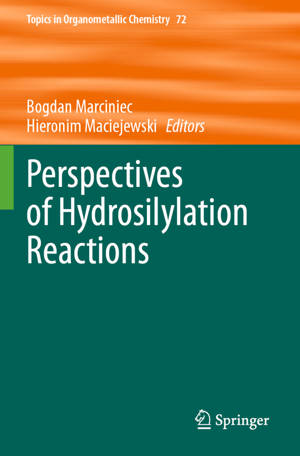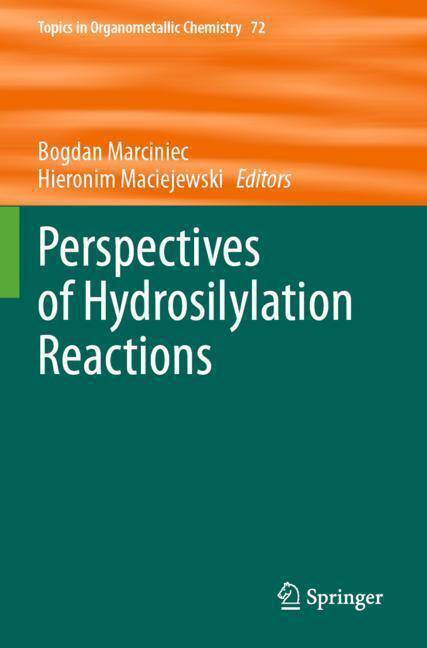
- Retrait gratuit dans votre magasin Club
- 7.000.000 titres dans notre catalogue
- Payer en toute sécurité
- Toujours un magasin près de chez vous
- Retrait gratuit dans votre magasin Club
- 7.000.0000 titres dans notre catalogue
- Payer en toute sécurité
- Toujours un magasin près de chez vous
Perspectives of Hydrosilylation Reactions
Description
This volume describes the latest advances and perspectives in hydrosilylation, with a focus on new organometallic catalysts and their mechanistic aspects. Hydrosilylation is the reaction of SiH with carbon-carbon, carbon-heteroatom or heteroatom-heteroatom bonds and is the most fundamental and elegant method for laboratory and industrial synthesis of organosilicon molecular and macromolecular compounds. Yet these reactions do require a catalyst, for which initially homogeneous noble metal catalyst, mainly platinum, rhodium, iridium or ruthenium were used. However the high prices, metallic residues of these valuable catalysts as well as issues with product purification, did increase the interest in developing new catalysts. Noteworthy in this regard are the recently developed hydrosilylation reactions using catalysts based on earth-abundant transition metals (for example Mn, Fe, Co, Ni) and heterogeneous catalysts presented here.
This volume of Topics in Organometallic Chemistry is written for scientists interested in silicon chemistry and its catalytic aspects, but can also be used as valuable handbook for postgraduate and advanced undergraduate students working with organometallic chemistry, catalysis as well as synthesis of fine chemicals.
Spécifications
Parties prenantes
- Editeur:
Contenu
- Nombre de pages :
- 328
- Langue:
- Anglais
- Collection :
- Tome:
- n° 72
Caractéristiques
- EAN:
- 9783031459627
- Format:
- Livre broché
- Dimensions :
- 155 mm x 18 mm
- Poids :
- 511 g






